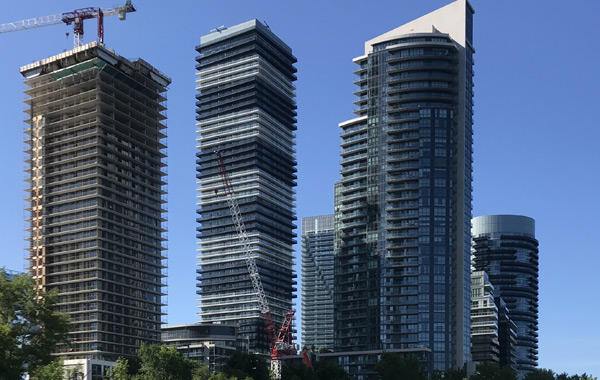By Richard Lyall,
RESCON
As we emerge from under the dark cloud of COVID-19 and the uncertainty that has reigned over us for the past few months, the focus is undoubtedly shifting towards how to kick-start the economy.
While it is important that we move thoughtfully, it is also critical that we do it quickly to remedy the malaise that has set in. The construction industry – in particular the residential sector – will play a key role in that recovery. We must make it easier, then, for developers to get project approvals.
To the credit of the industry, residential construction continued to work during the crisis, which was important considering the extreme shortage of affordable housing in Toronto. Our industry was deemed essential and both contractors and workers deserve to be commended for soldiering on while other industries were shuttered.
Adapt to change
Our post-COVID world is likely going to be very different, and both the construction industry and municipalities must be willing to accept and adapt to change.
One of those changes must be in the way we deal with the application, permitting and inspection processes. Not cutting regulations or making things unsafe, but we must reduce the red tape.
We are presently under-producing on housing. We will need more immigrants to support our aging population, yet we don’t have the housing to support them and other migrants. It is vital, then, to speed up the building process.
An inefficient approvals process will only stymie recovery efforts and damage the economy. Developers, for example, cannot afford to wait years to see if their projects get municipal approval. From concept to occupancy, it can take more than 10 years to build major projects in Toronto.
The City of Toronto is now taking some steps to eliminate red tape and improve the process via an initiative called Concept to Keys. The idea follows up on an end-to-end review of the development review process at the city. RESCON both applauds and supports this concept.
Process of change
Oddly enough, while COVID-19 has increased building costs, it may have sped-up the process of change as municipalities are shifting from a paper-based system with in-person meetings, to a digital process where people can apply, meet and participate from anywhere. Permit applications can be filled out online or dropped off. Virtual inspections are even allowed for some buildings, plumbing, gas and electrical work.
The provincial government put us on the right path by passing the More Homes, More Choice Act. However, it was only the first step and there is much more work to be done.
Canada, represented by Toronto, ranked 64th in the world among 190 countries when it comes to dealing with construction permits, while the U.S., represented by New York City and Los Angeles, ranked 24th.
Clearly, we still have a lot of ground to make up. It is vital, then, that we keep our eye on the ball.

Richard Lyall is the president of the Residential Construction Council of Ontario (RESCON).












